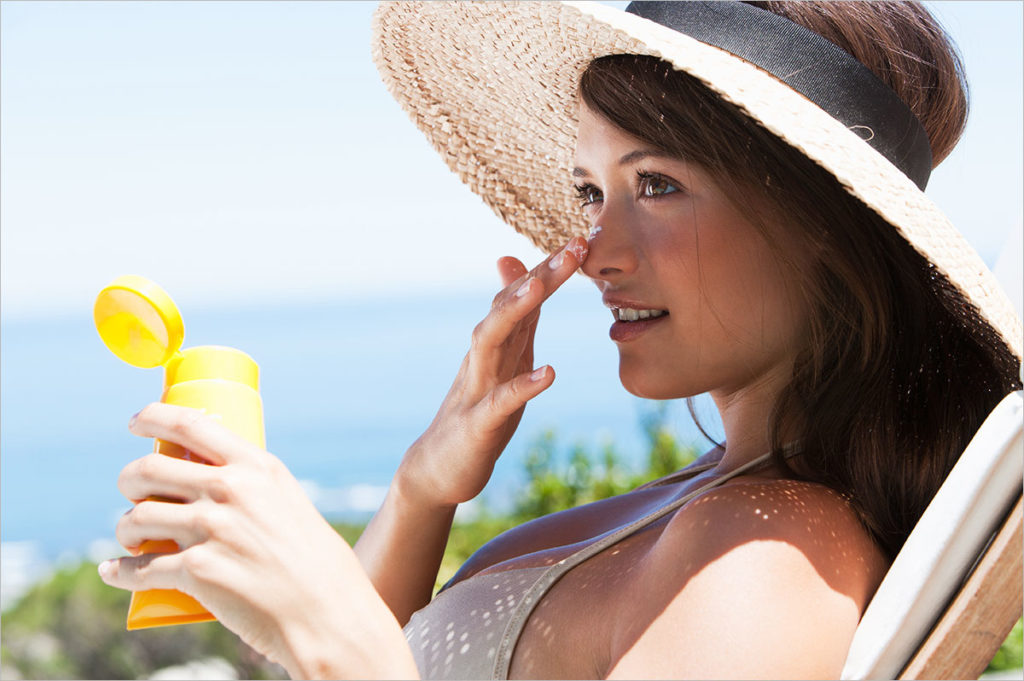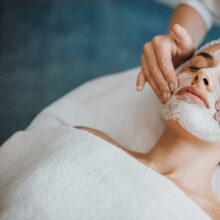The Truth about Natural Sunscreens – Scope Out The Right Sunscreen for You
- Published: Monday, May 22nd 2017
- in Living Well

Summertime is around the corner and for many of us, it’s time to choose the right sunscreen to protect ourselves from sunburns, blemishes, and harmful exposure.
Turns out if we want to make smart decisions about the sunscreen we choose, we need to do a little homework.
However, you choose to protect your skin this summer, remember before a day at the beach, apply sunscreen 15-30 minutes before. Reapply often, find a shady place during noon especially because that’s when the sun is at its peak and ensure you choose a sunscreen with UVA and UVB protection. For adults an SPF of 15 works and 30 for kids.
In Europe, all sunscreens must offer UVA protection that is at least ½ as potent as the SPF (UVB protection) It’s important to look for the same here in the States.
What about the claim that there are natural sunscreens to use? Consumer reports states, “If you want a sunscreen without chemicals, consider Cotz Plus SPF 58, which was the top-scoring “natural” sunscreen in our tests—delivering an SPF of 38 and Very Good UVA protection—or California Baby Super Sensitive SPF 30+, which met its SPF claim and received a Good Rating for UVA and UVB protection.”
If you can’t find those, consumer reports suggest you look at the list of active ingredients and picking a chemical sunscreen-not one with just titanium dioxide and/or zinc oxide.
The reason so many fail is because a uniform protective film needs to form so that you are adequately protected from the sun and the chances of having this uniform film at an SPF 30 is somewhat unlikely.
Another useful tip, try to avoid sunscreens that contain Oxybenzone, nearly half do and it’s a high hazard chemical, According to the Environmental Working Group (EWG), this chemical penetrates the skin, gets into the bloodstream and acts like estrogen in the body. It can trigger allergic reactions and health harms including endometriosis in women and low sperm counts in men.
In addition, remember these quick tips:
Stay close to shade- Being in the sun can be fun, but your skin needs time to adapt. Too much sun exposure too soon can lead to burning, itching and a restless night.
Avoid sprays according to the EWG. Unintentionally you may be inhaling these into your lungs. Otherwise, the spray may also not land on your skin leaving it exposed to sunburn.
Sunscreens expire. Buy new sunscreens, don’t just use what’s been lying around the house.
When all else fails, opt for a hat. Sun hats are always popular. It’s a good way to stay cool and covered fashionably.
For a peek at the EWG’s most highly recommended sunscreens this summer, click here. http://www.ewg.org/sunscreen/best-sunscreens/best-beach-sport-sunscreens/



